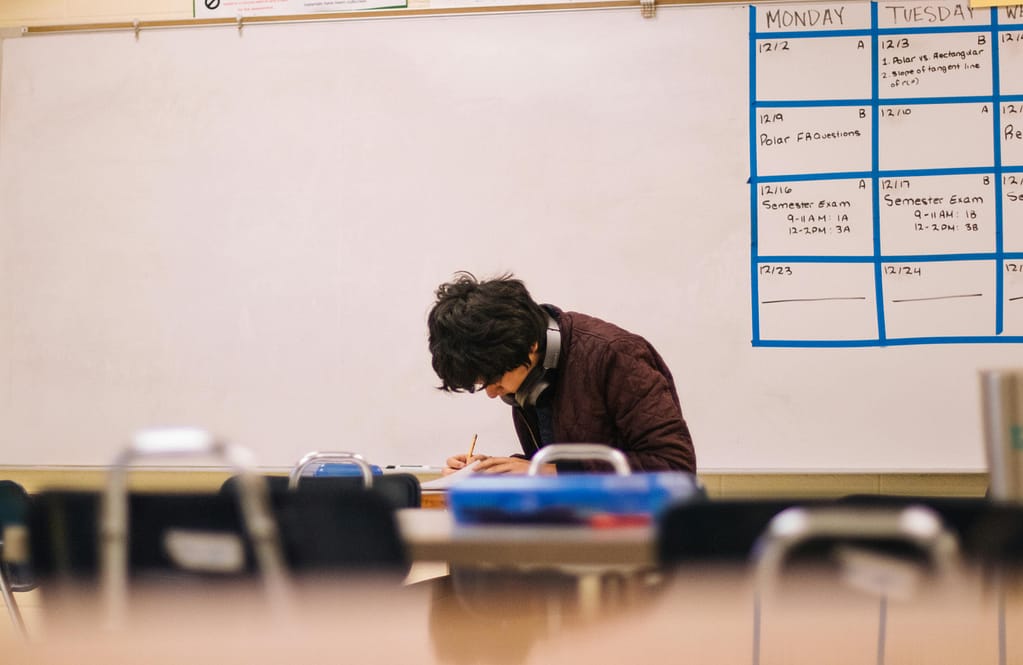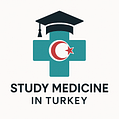If you find yourself reading this, chances are you are interested in medical study in Turkey. Let us tell more about the details of the curriculum and navigate through the challenges of each academic year.
Contents

Is the Medical study in Turkey similar to the European form?
Medical study in Turkey is similar to the European form since Turkey agreed with the Bologna conditions in 2001 and became a member of the European higher education area. The Bologna process is composed of a series of agreements to ensure more compatibility and integrity in the higher education system within Europe.
The Bologna process not only includes members of the European Union, since it has opened up to countries outside Europe too such as Turkey in this case but also countries like Russia, Kazakhstan, and Ireland. It should also guarantee the recognition of the equivalence of the degrees. The members of the European higher education area are still able to set their additional criteria, which must be clearly defined and accessible.
What is the structure of Medical study in Turkey?
Medical study in Turkey is composed of six years, of which the first 3 years are referred to as the preclinical phase. There the student acquires wide-ranging knowledge about fundamental subjects such as Biology, Biochemistry, Anatomy, and Physiology. In the first year, the fresh students attend lessons in subjects like medical biology, chemistry, biochemistry, and anatomy.

In the first weeks of the first-semester revision of high school knowledge in biology and chemistry is done. You are going to repeat stuff such as protein biosynthesis, the molecular structure of proteins including enzymes, and the chemical structure of carbohydrates as an example. In the second semester of the first year, the first anatomy lessons begin. You start learning the bones in detail. In general, I can say that the subject matter is not as superficial as in high school. In contrast to high school, the lessons in university are covered deeper and the specific processes are explained more in detail.
Is memorization the primary focus in the study of medicine?
There is a widespread thought that the study of medicine is mostly composed of memorizing. This is in general is not false. Memorizing plays a very important role in some subjects like anatomy or microbiology, where you have to memorize nearly everything about the structure of bones, their several compartments, the muscles attached to them, and their corresponding nervous innervation of the specific names of bacteria or viruses and their related diseases in the latter case. I can assure you that blunt memorizing will not guarantee you become a good doctor. But, it will help you to pass the exams.
I noticed that students, who are better at memorizing, are passing the exams more easily. This does not mean that memorizing is an absolute method for every subject. There are subjects like physiology including cardiology and pulmonology and later pathology, where skills like deep comprehension and integration of associated body processes are required. Questions in these subjects are quite difficult because you have to understand the background mechanisms of the topic and should be able to form connections between them.
How is the first year structured?
In the first year, you are going to attend lessons once every two weeks, where practicing physicians from our university hospital teach us about first aid including cardiac massage, ventilation, and the utilization of an automatic defibrillator. We are taught how to act properly in emergencies and to perform tests to measure vital signs. It becomes more interesting to view the practices of a doctor when learning theoretical stuff the whole time.
Corresponding to the theoretical lessons in the first year laboratory lessons are integrated every week, where you learn to apply your adopted theoretical knowledge to practical applications. For every anatomy and histology theory lesson covered a practical lesson follows before another theory lesson. This allows you to consult and strengthen your knowledge. In anatomy, the whole class is divided into groups of five and seven people. Here they subsequently discuss the theoretical lessons based on scaled models of the human body. In histology, two people are respectively assigned to one microscope and deal with preparations of different tissues. There are also laboratory lessons for other subjects as biochemistry, medical biology, and microbiology but there are few.
Why is the second year considered more challenging?
There is one thing many medical students from the higher years can agree with, the second year is more difficult than the first year. They compare the first year to a type of honeymoon, saying that freshman should not put themselves under extreme pressure for the first year and should spare their energy for the upcoming years. I can agree with them. There are several reasons why. More exams, less time, and more complicated topics in summary.
Starting with the first point of having more exams in the second year than in the first year. In the first year, the student has to get into five exams in total. Two are in the first semester, two in the second semester and the last fifth one is the final exam at the end of the year. In the second year instead, there are seven exams. Three in the first semester and three in the second semester plus a final exam. This means that the preparation time for one exam decreased by nearly one and a half weeks. Additionally, you are going to undergo two more stressful times in contrast to the first year.
Another point, that makes the second year more difficult than the first year is that the lessons get harder and the teachers start to dive deeper into the processes. They do not consider you as a freshman and favor using more scientific language. One of the main subjects of the second year is physiology. It differs from other subjects in that point that the focus is kept more on understanding than memorizing. You have to understand the mechanisms of our body and have to build connections between them to understand their interaction. This is the only way to pass the exams. Our teacher put much weight on the internalization of physiological mechanisms rather than their memorization.
What changes in the third year of medicine study?
In this year the lessons change from basic sciences to a more applied scientific orientation. This is a preparation for the clinical part starting after this year. New lessons begin to appear and take the place of former lessons. Pathology, pharmacology, and more specific ones such as cardiology, pulmonology, and gastroenterology are now integrated into the curriculum.

Pathology is principally similar to physiology but focuses more on the causes and effects of injuries and diseases. This becomes interesting when you learn the scientific background of familiar diseases. A simple injury everybody experienced as a kid is a complex interaction between several cellular processes.
What is the exam system like in Medical study in Turkey?
There are multiple exams distributed throughout the year. They are done in the widely known form of multiple-choice tests. Here five answers are given for each question with only one being right most of the time. In each exam, 100 questions are asked. More questions are in the final exam, which occurs at the end of the year. In the first year, four exams are taken. Six exams are in the second year and seven exams in the third year. Additionally to the exams given before there is the final exam, where all topics from the respective year are asked again.
Indifference to other systems like in Germany, where a separate exam is done for every single subject, all topics of that section are asked at once in a single exam, referred to as “kurul” or “committee” in Medical study in Turkey. The student has to get 60 points out of 100 points in each exam to “pass” the exam.
You may ask for the reason behind putting the word pass in quotation marks? You do not have to pass every single exam to pass the whole year. This means that you can “fail” in one single exam by getting 40 or 50 points. But, you need to reach a higher point in another exam like 80 or 70(referring to the points given in the same sentence), and pass the whole year without redoing the failed exam or failed topics in the following year. Every correct question answered equals one point. This changes in the final exam, where 120 or 130 questions are asked with a total point of 100 remaining.
How does it differ from medical education in other countries?
In Germany, a student has to answer 60 percent of the questions right to pass that topic. If the student does not pass the topic, the exam for that particular subject has to be passed in the following year. He/She has a limited amount of trials for each exam.

In Turkey, the student does not have to pass every single subject, instead, the exams contain multiple subjects. This means that the students do not have to get 60 percent at least in every subject included in the exam to pass it. Rather, they have to pass the exam itself and not any specific topic included in the exam. 60 percent has to be answered correctly in the exams of 100 questions each in total. Still, there is a so-called “baraj” system, meaning dam in Englisch. If you do not get 60 percent right in each topic, the points required to do so, are deducted from your score for that specific subject.
Let me give an example: There is a subject we are referring to as “X” and 20 questions out of 100 questions are about this subject. If you answered 10 questions about subject X correctly, you receive 8 points and not 10 as someone not knowing the “baraj” system would think. Without this system, you would have got 10 point. Since 2 questions were missing to answer 60 percent correctly, they are taken away from your total score. So to compensate for one wrong answer, when you could not answer 60 percent of a subject correctly, you would have needed to solve 2 answers correctly on another subject. This is done to prevent students of unilateral learning methods. Some difficult important subjects are disregarded due to the comfort of a potential compensation via easier, “less” important subjects.
Conclusion
In conclusion, the journey through medical study in Turkey offers a rich tapestry of challenges, insights, and strategies. Aspiring healthcare professionals can find a unique blend of academic rigor and personal growth, making this exploration a valuable resource for those considering this noble profession.

Hey there,
As the admin of studyingmedicineinturkey.com, I bring firsthand experience as a foreign medical student studying in Ankara, Turkey. My journey has provided me with valuable insights into the challenges and opportunities that international students encounter while pursuing their medical education in Turkey.
Best of Luck:)



